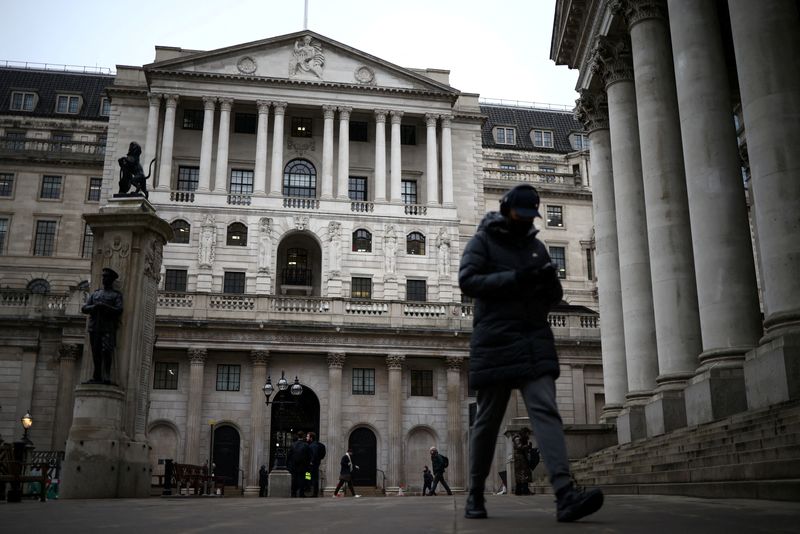
UK employers cut growth forecasts as tax hikes weigh on economy
By William Schomberg
LONDON (Reuters) – One of Britain’s leading employers’ groups on Friday cut its estimate for economic growth next year due to measures in the new government’s first budget, striking a gloomier note than other recent forecasts.
Growth in 2025 is now seen at 1.6%, the Confederation of British Industry (CBI) said, down from a projection of 1.9% made in June. The growth outlook for this year was trimmed to 0.9% from the June forecast of 1.0%.
“Measures in the autumn budget will increase firms’ costs at a time when their profit margins have already been under pressure,” Louise Hellem, the CBI’s chief economist, said.
“Many businesses have told us that these measures will likely push up prices and weigh on their hiring and investment plans going forward.”
Finance minister Rachel Reeves announced in her Oct. 30 budget that employers will have to pay higher social security contributions for their workers from April, which is also when the minimum wage is due to rise by almost 7%.
Many businesses have said the higher costs will threaten Prime Minister Keir Starmer’s plan to speed up the economy.
The Bank of England said on Thursday that more than half of companies taking part in a survey planned to raise prices and cut jobs in response to the budget.
On Thursday, Starmer said his government was doubling down on its growth ambitions.
Another employers group, the British Chambers of Commerce, said on Wednesday that 2025 was likely to be difficult due to the increase in employment costs and potential tariffs on exports once Donald Trump becomes U.S. president.
However, unlike the CBI, the BCC revised up its forecast for growth in 2025 to 1.3% from a previous estimate of 1.0%.
The OECD also this week raised its forecasts for Britain’s economic growth in 2025 to 1.7% from 1.2% previously.
The CBI said business investment would pick up in 2025 but slow slightly in 2026, reflecting the higher employment costs and the “crowding out” effect from higher public investment.
Inflation would remain above the BoE’s target until at least 2027, pushed up in part by the higher labour costs which would also weigh on private sector employment and result in a greater share of employment growth coming from the self-employed.
Wage growth was set to weaken and the BoE would cut its benchmark Bank Rate slowly to 3.5% by late 2026 from 4.75% now.
Overall economic growth in 2026 was seen at 1.5%.
The CBI’s forecasts assumed Britain avoids extra U.S. trade tariffs but the impact on growth and inflation would be marginal if the country was dragged into a trade war, it said.

